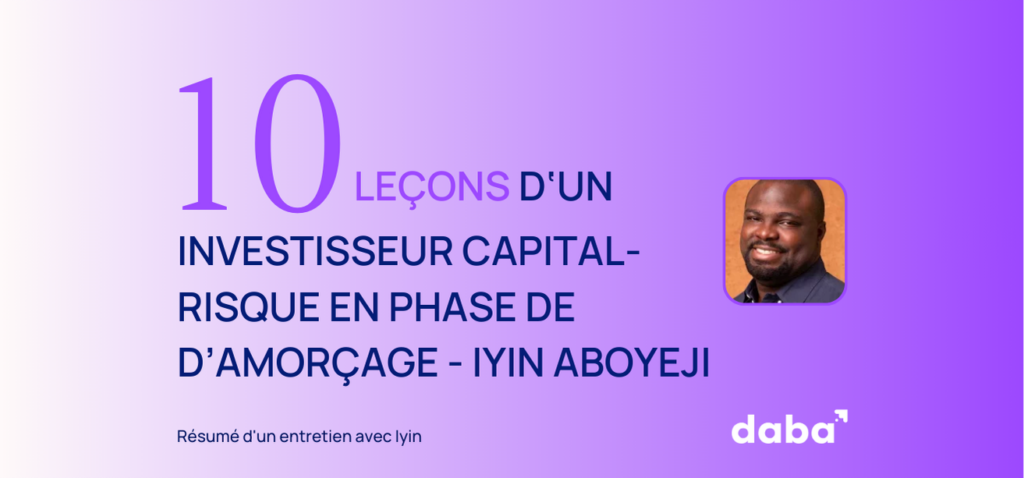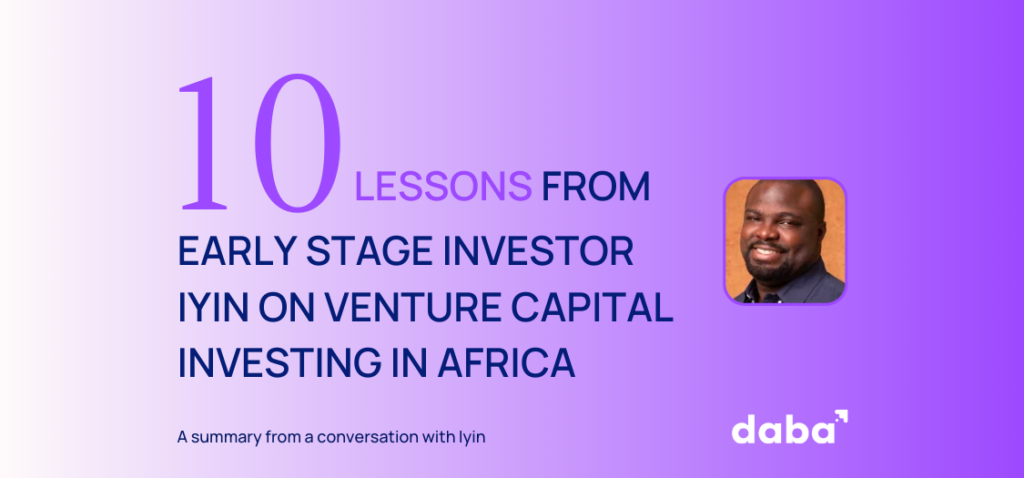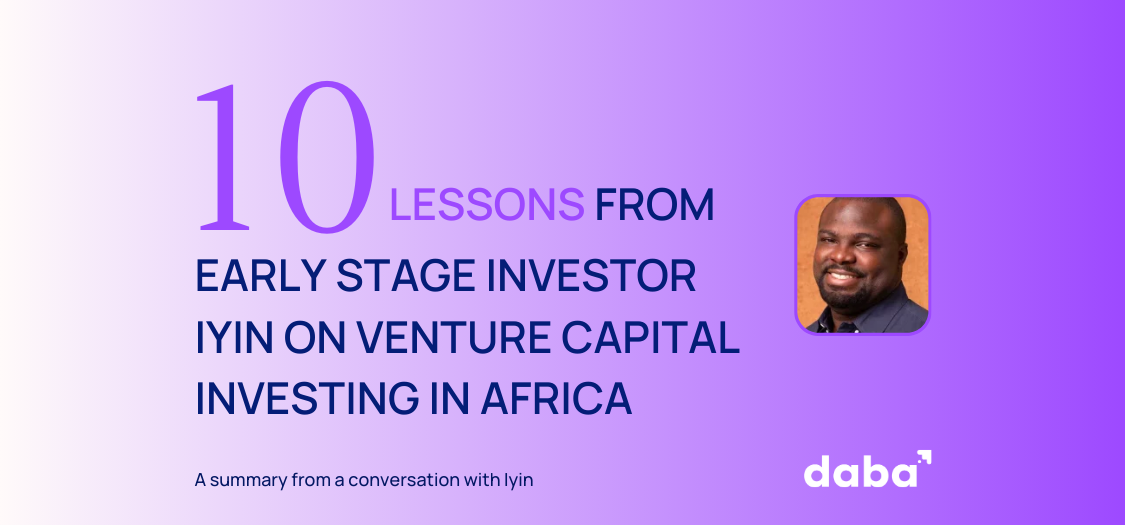Investir dans les startups africaines offre une opportunité unique de réaliser des rendements significatifs tout en contribuant à la croissance économique du continent.
À mesure que l’écosystème des startups africaines continue d’évoluer, les investisseurs peuvent capitaliser sur une gamme de projets prometteurs dans divers secteurs.
Voici un guide pour vous aider à comprendre comment gagner de l’argent en investissant dans les startups africaines.
Comprendre le Paysage des Startups Africaines
Avant de vous lancer dans des investissements, il est crucial de comprendre les dynamiques uniques du marché africain. L’Afrique abrite une population jeune et en croissance rapide, une pénétration accrue des téléphones mobiles et une amélioration de la connectivité internet.
Ces facteurs créent un terreau fertile pour les startups innovantes. Cependant, les investisseurs doivent également être conscients des défis, tels que les complexités réglementaires, les lacunes en infrastructure et l’instabilité politique dans certaines régions.
Lire aussi : Comment Mesurer la Performance de Votre Fonds de Capital-Risque
Stratégies Clés pour Investir avec Succès
Recherche et Diligence Raisonnée : Effectuez des recherches approfondies sur l’écosystème des startups dans la région qui vous intéresse. Comprenez les tendances du marché, les acteurs clés et l’environnement réglementaire. Réalisez une diligence raisonnée sur les opportunités d’investissement potentielles en évaluant le modèle commercial, le potentiel du marché, le paysage concurrentiel et l’expertise de l’équipe fondatrice.
Focus sur les Secteurs à Forte Croissance : Certains secteurs en Afrique ont montré un potentiel de croissance exceptionnel, tels que la fintech, l’agritech, la healthtech et le e-commerce. En vous concentrant sur ces secteurs à forte croissance, vous pouvez augmenter vos chances d’identifier des startups avec un potentiel de hausse significatif.
Diversifiez Votre Portefeuille : La diversification est la clé pour atténuer les risques. Répartissez vos investissements entre différentes startups, secteurs et régions en Afrique. Cette approche aide à équilibrer les risques et les récompenses, assurant que votre portefeuille reste résilient aux fluctuations du marché.
Engagez-vous avec les Écosystèmes Locaux : Établir des connexions solides au sein des écosystèmes locaux des startups peut fournir des informations précieuses et un accès à des opportunités d’investissement exclusives. Assistez à des événements de startups, rejoignez des réseaux d’investisseurs et collaborez avec des sociétés de capital-risque locales pour rester informé et connecté.
Évaluation des Métriques des Startups
Les investisseurs doivent se fier à des métriques de performance clés pour évaluer le potentiel des startups africaines. Voici quelques métriques importantes à considérer :
Marché Total Addressable (TAM) : Évaluez la taille globale du marché et le potentiel de croissance.
Revenu Mensuel Récurent (MRR) : Pour les modèles basés sur l’abonnement, cela indique un revenu stable.
Coût d’Acquisition Client (CAC) : Comprenez l’efficacité des stratégies d’acquisition de clients.
Valeur à Vie (LTV) : Évaluez le potentiel de revenu à long terme de chaque client.
Taux de Churn : Un faible taux de churn indique une haute rétention des clients.
Taux de Consommation et Runway : Ces métriques montrent la vitesse à laquelle une startup dépense son capital et combien de temps elle peut fonctionner avant de nécessiter un financement supplémentaire.
Lire aussi : 15 Métriques à Connaître pour Investir dans les Startups Africaines en 2024
L’Importance de la Patience et de la Vision à Long Terme
Investir dans les startups, en particulier sur les marchés émergents comme l’Afrique, nécessite de la patience et une perspective à long terme.
Les startups prennent souvent du temps à se développer et à atteindre la rentabilité. Les investisseurs doivent être prêts pour le long terme, comprenant que les rendements les plus importants viennent souvent d’une croissance soutenue sur plusieurs années.
Options de Sortie pour les Investisseurs
Comprendre les options de sortie est crucial pour réaliser des rendements sur les investissements dans les startups. Voici les principales stratégies de sortie :
Introduction en Bourse (IPO) : Une IPO est lorsque une startup devient publique en offrant des actions au public pour la première fois. Bien que relativement rares en Afrique, la maturité croissante du marché suggère que plus d’IPO pourraient se produire à l’avenir.
Acquisitions : Les grandes entreprises, locales et internationales, acquièrent souvent des startups réussies pour renforcer leurs capacités ou entrer sur de nouveaux marchés. Les acquisitions peuvent offrir des rendements substantiels aux investisseurs.
Ventes Secondaires : Les investisseurs peuvent vendre leurs actions à d’autres investisseurs sur les marchés secondaires avant que la startup n’atteigne une IPO ou une acquisition. Cette option peut offrir de la liquidité et des rendements.
Rachats : Dans certains cas, la startup elle-même peut racheter des actions aux investisseurs. Cela peut se produire lorsque l’entreprise dispose de réserves de trésorerie suffisantes et souhaite consolider la propriété.
Fusions : Similaires aux acquisitions, les fusions impliquent la combinaison de deux entreprises. Cela peut être bénéfique pour les startups cherchant à croître rapidement ou à entrer sur de nouveaux marchés.
Dividendes : Bien que moins courants dans le monde des startups, certaines startups peuvent atteindre la rentabilité et choisir de verser des dividendes à leurs actionnaires.
Histoires de Succès
De nombreuses histoires de succès ont émergé de l’écosystème des startups africaines. Des entreprises comme Flutterwave, Jumia et Andela ont grandi pour devenir des acteurs majeurs, offrant des rendements substantiels aux premiers investisseurs.
Ces histoires de succès soulignent le potentiel immense des startups africaines et les opportunités lucratives disponibles pour les investisseurs avisés.
Utiliser la Plateforme de Daba
La plateforme d’investissement unifiée de Daba offre des ressources inestimables pour les investisseurs cherchant à gagner de l’argent en investissant dans les startups africaines. Voici comment Daba peut vous aider :
Accès à des Startups Vérifiées : Daba fournit une liste sélectionnée de startups à fort potentiel dans divers secteurs en Afrique.
Analyses Détaillées : Notre plateforme offre des informations et des analyses complètes sur les métriques de performance des startups, aidant les investisseurs à prendre des décisions éclairées.
Diversification des Investissements : Daba permet aux investisseurs de diversifier leurs portefeuilles en offrant un accès à une large gamme d’options d’investissement, y compris des fonds de capital-risque, des actions et des fonds du marché monétaire.
Guidage Expert : Avec notre équipe d’experts, les investisseurs reçoivent des conseils sur les tendances du marché, les stratégies d’investissement et les meilleures opportunités dans l’écosystème des startups africaines.
Conclusion
Investir dans les startups africaines offre une voie vers des rendements financiers significatifs et la possibilité de soutenir l’écosystème entrepreneurial en pleine croissance du continent.
En effectuant des recherches approfondies, en se concentrant sur les secteurs à forte croissance, en diversifiant votre portefeuille et en utilisant des plateformes comme Daba, les investisseurs peuvent naviguer dans les défis uniques du marché africain et débloquer des opportunités rentables.
Pour explorer les opportunités d’investissement et accéder à des métriques détaillées et des conseils d’experts, visitez la plateforme de Daba dès aujourd’hui et commencez votre parcours vers des investissements de haute qualité dans l’écosystème dynamique des startups en Afrique.









